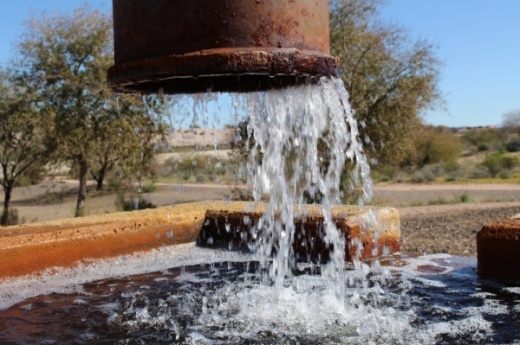Colonias are unincorporated areas of the county that lack basic utilities.
Built in the early 2000s, Las Lomitas lacks water lines because its developer sold lots without installing any, leaving dozens of families in the lurch.
While commissioners have been aware of Las Lomitas and its need for water for years, they committed to developing strategies to address colonias after voting to increase the price of the county’s bulk water services in August in an effort to recover the full cost of providing the service.
Bulk water is nonpotable, and many Las Lomitas residents rely on it for cooking, bathing and other tasks.
After hearing from residents that the price increase would cause an unexpected cost burden, commissioners decided to delay the price increase until March, work with residents who need financial assistance and work to address colonias in their jurisdiction.
The county is now pursuing an easement, which will reduce the amount of water lines that need to be laid, and thus the costs thereof.
The Creedmoor-Maha Water Supply Corporation, the area water utility, estimates it will cost around $300,000 to lay the necessary lines with an easement.
“We were looking at spending nearly a quarter of a million dollars in any case just in keeping a substandard water spigot open on an annualized basis,” County Judge Sarah Eckhardt said. “While there is a cost associated with this effort, we do feel it’s an investment in a true solution rather than an investment in a substandard system.”
Providing an easement raises other concerns, however.
“Just be aware, when we do provide water, it makes [the subdivision] more develop-able,” said Anna Bowlin, division director for development services and long-range planning. “And also, be aware that when we add water, we have to look at what might happen in the future with the septic systems.”
Commissioners have also discussed the demand for similar assistance in other colonias in Travis County as well as funding constraints prompted by the property tax revenue cap passed by state legislators in 2019, which will take effect in October.
In addition to pursuing an easement, commissioners need to determine how much funding the county is able and willing to commit to this project and any cost-recovery mechanisms that may be available.
“We do want to recognize that there is going to be an increased marketability of the properties, and we want to capture that market value for the future to possibly pay us back,” Eckhardt said. “We’re not looking to take this out of the residents’ pockets at all today. But if the property is going to be significantly enhanced in value and it sells someday in the future, it would be nice to recoup some of the public investment that redounds the property value.”




